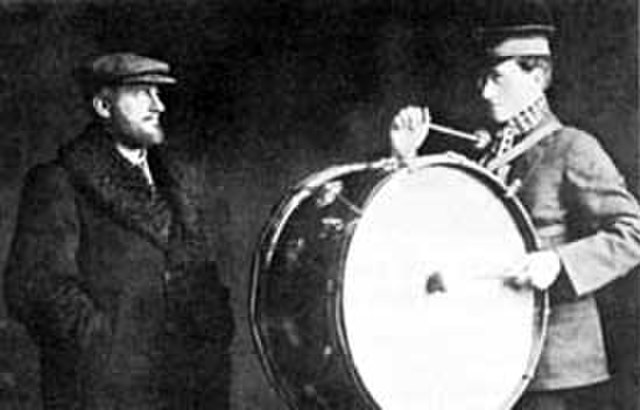Major Barbara is a three-act English play by George Bernard Shaw, written and premiered in 1905 and first published in 1907. The story concerns an idealistic young woman, Barbara Undershaft, who is engaged in helping the poor as a Major in the Salvation Army in London. For many years, Barbara and her siblings have been estranged from their father, Andrew Undershaft, who now reappears as a rich and successful munitions maker. The father gives money to the Salvation Army, which offends Barbara because she considers it "tainted" wealth. The father argues that poverty is a worse problem than munitions and claims that he is doing more to help society by giving his workers jobs and a steady income than she is doing by giving people free meals in a soup kitchen.
Louis Calvert as Andrew Undershaft and Harley Granville-Barker as Adolphus Cusins in Major Barbara (1905)
George Bernard Shaw, known at his insistence as Bernard Shaw, was an Irish playwright, critic, polemicist and political activist. His influence on Western theatre, culture and politics extended from the 1880s to his death and beyond. He wrote more than sixty plays, including major works such as Man and Superman (1902), Pygmalion (1913) and Saint Joan (1923). With a range incorporating both contemporary satire and historical allegory, Shaw became the leading dramatist of his generation, and in 1925 was awarded the Nobel Prize in Literature.
Shaw in 1911, by Alvin Langdon Coburn
Shaw's birthplace (2012 photograph). The plaque reads "Bernard Shaw, author of many plays, was born in this house, 26 July 1856".
Shaw in 1879
William Archer, colleague and benefactor of Shaw





